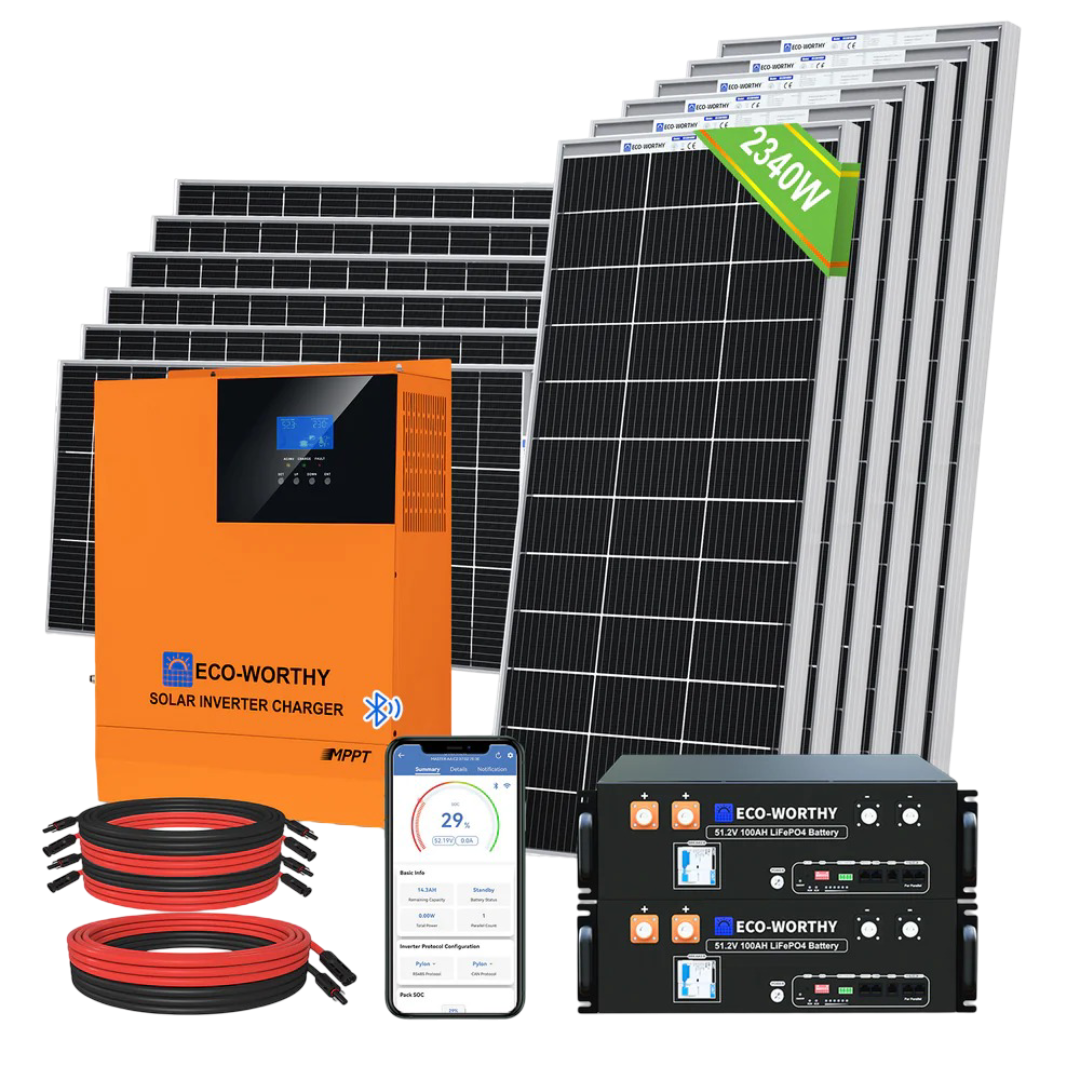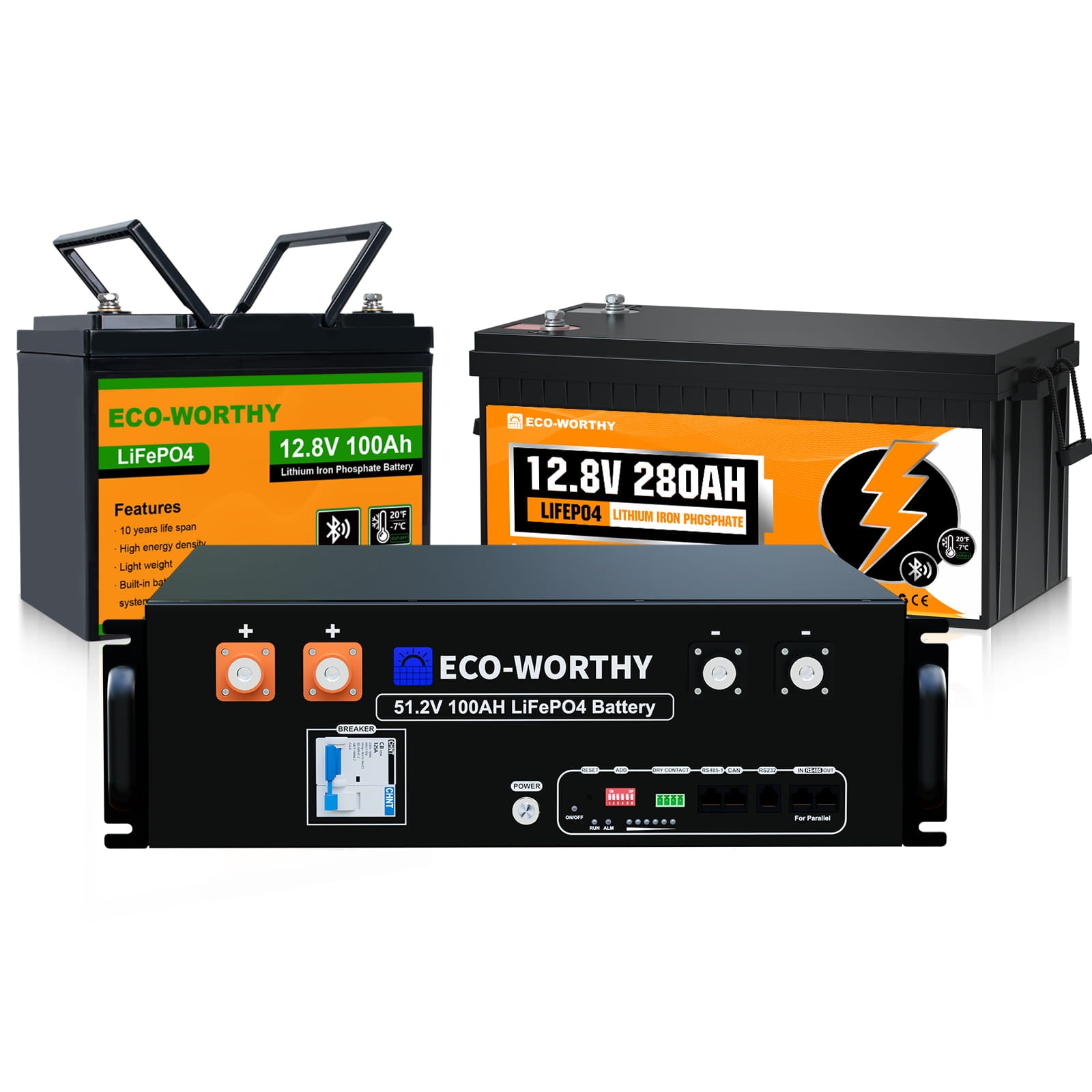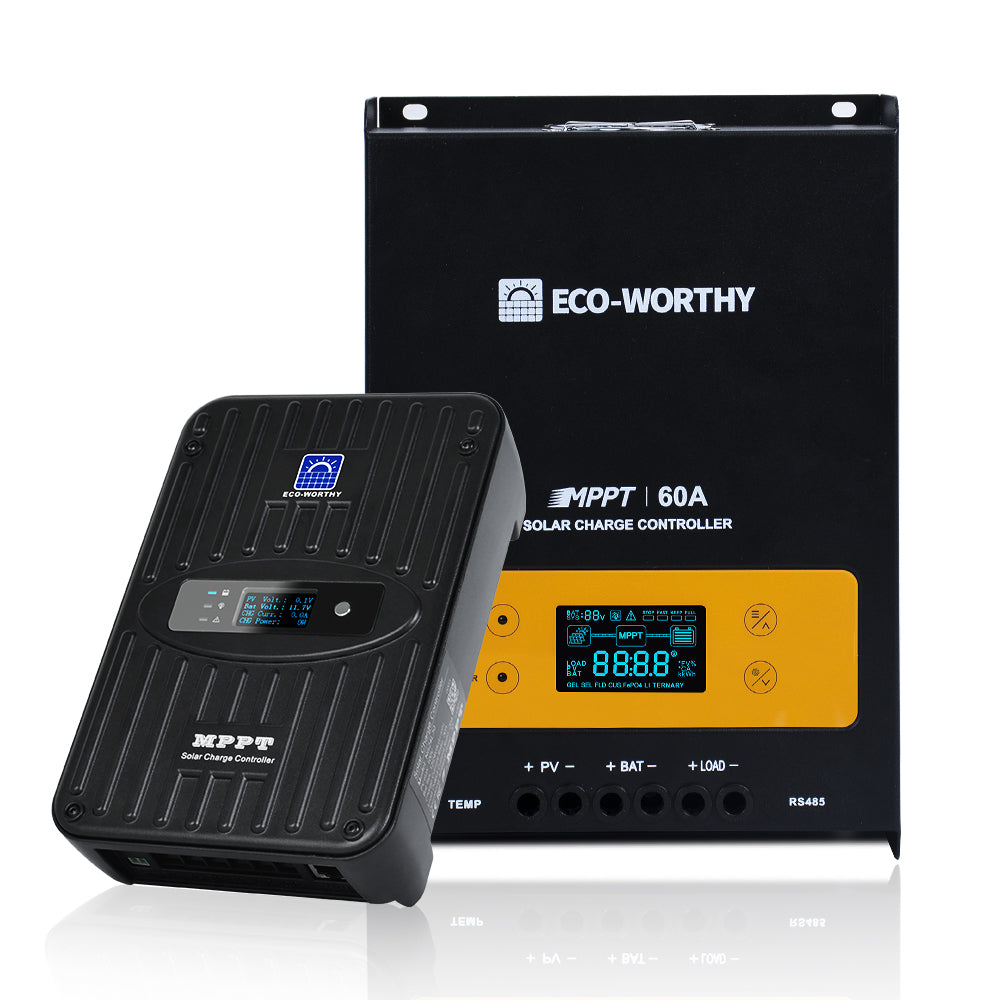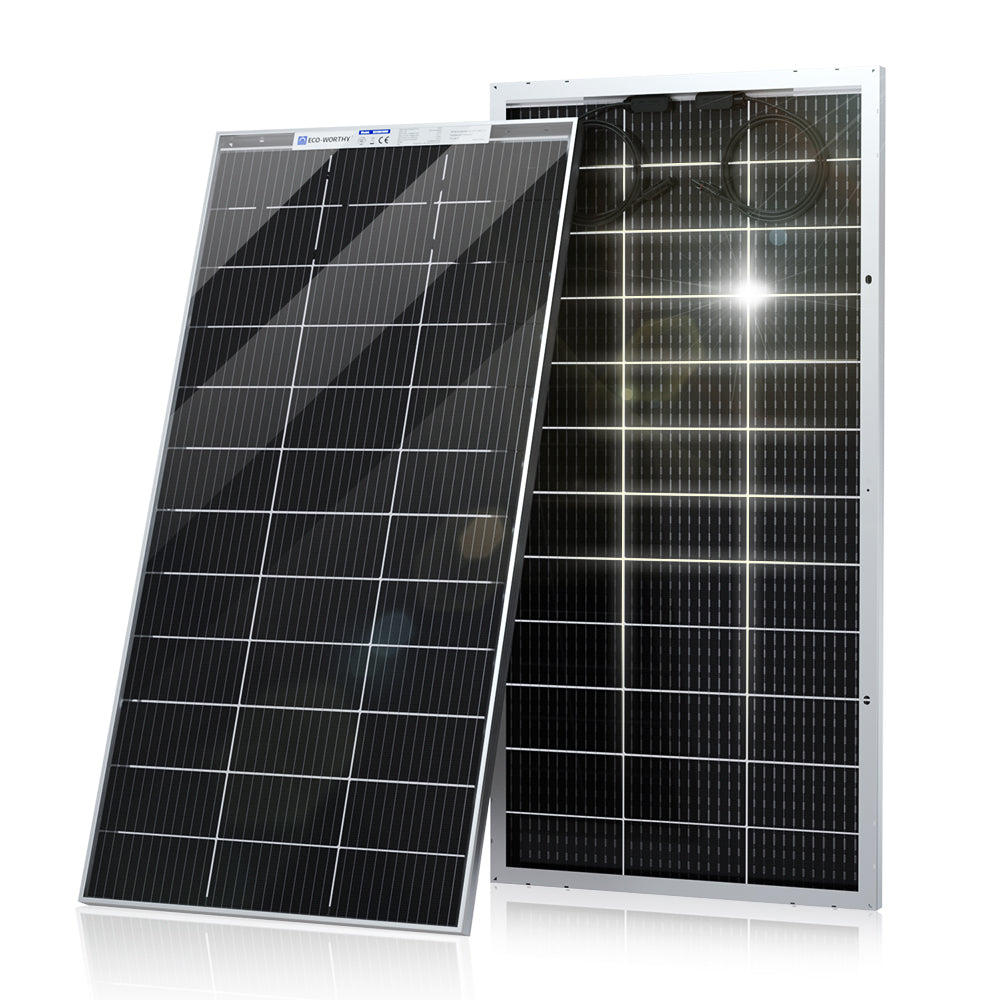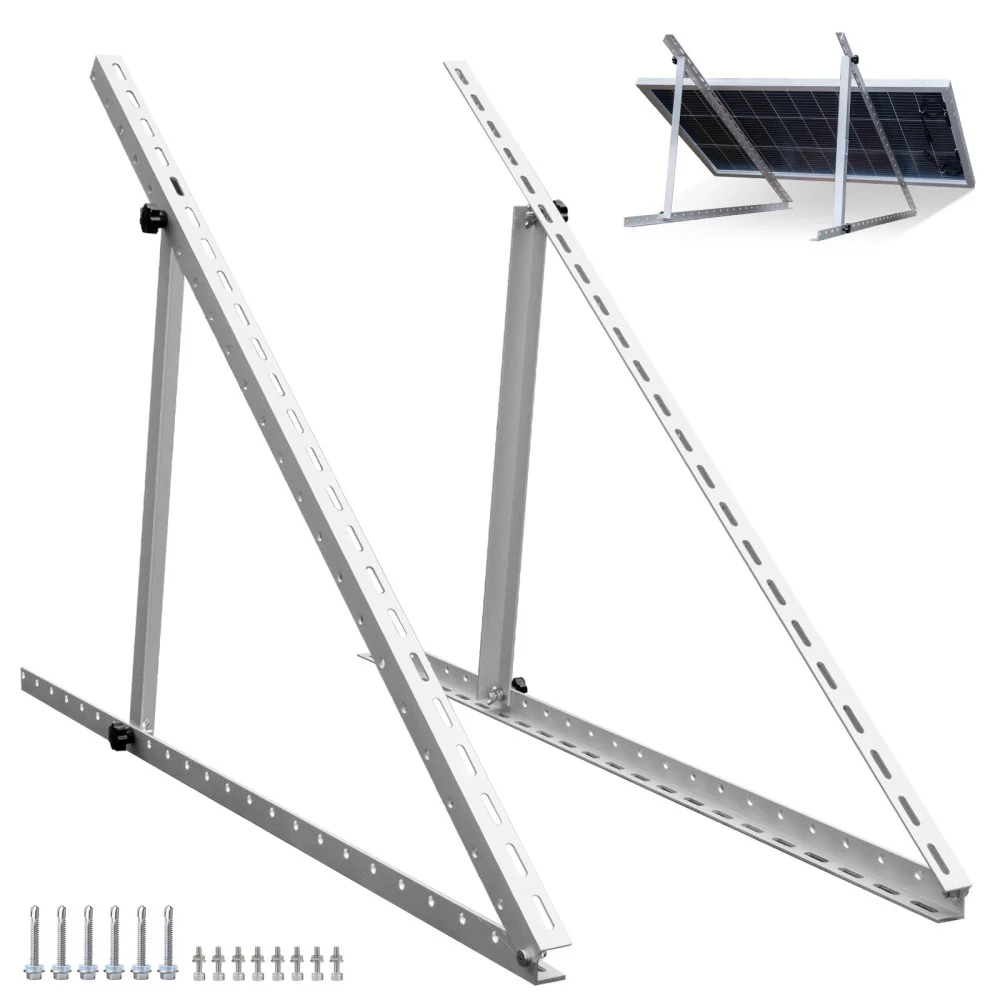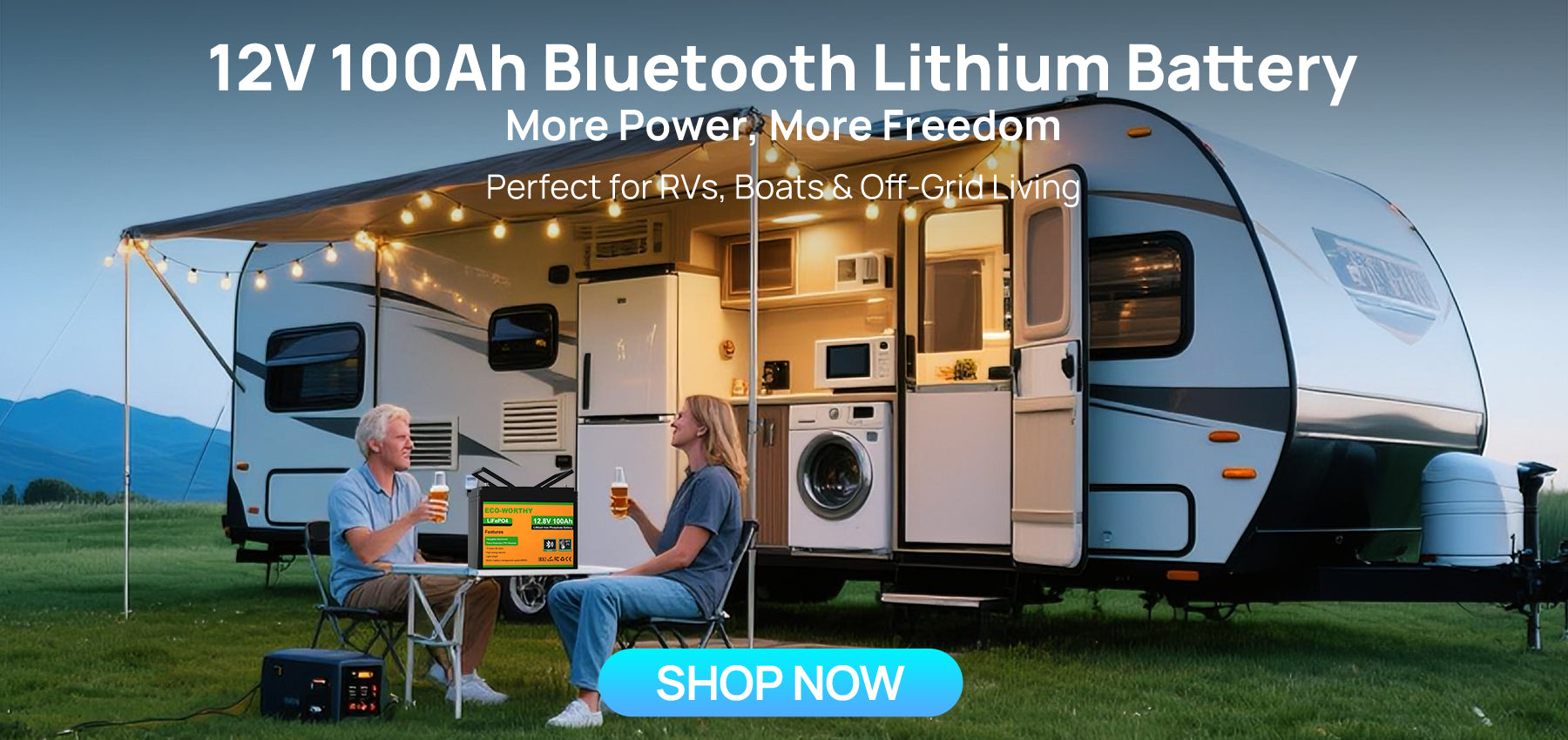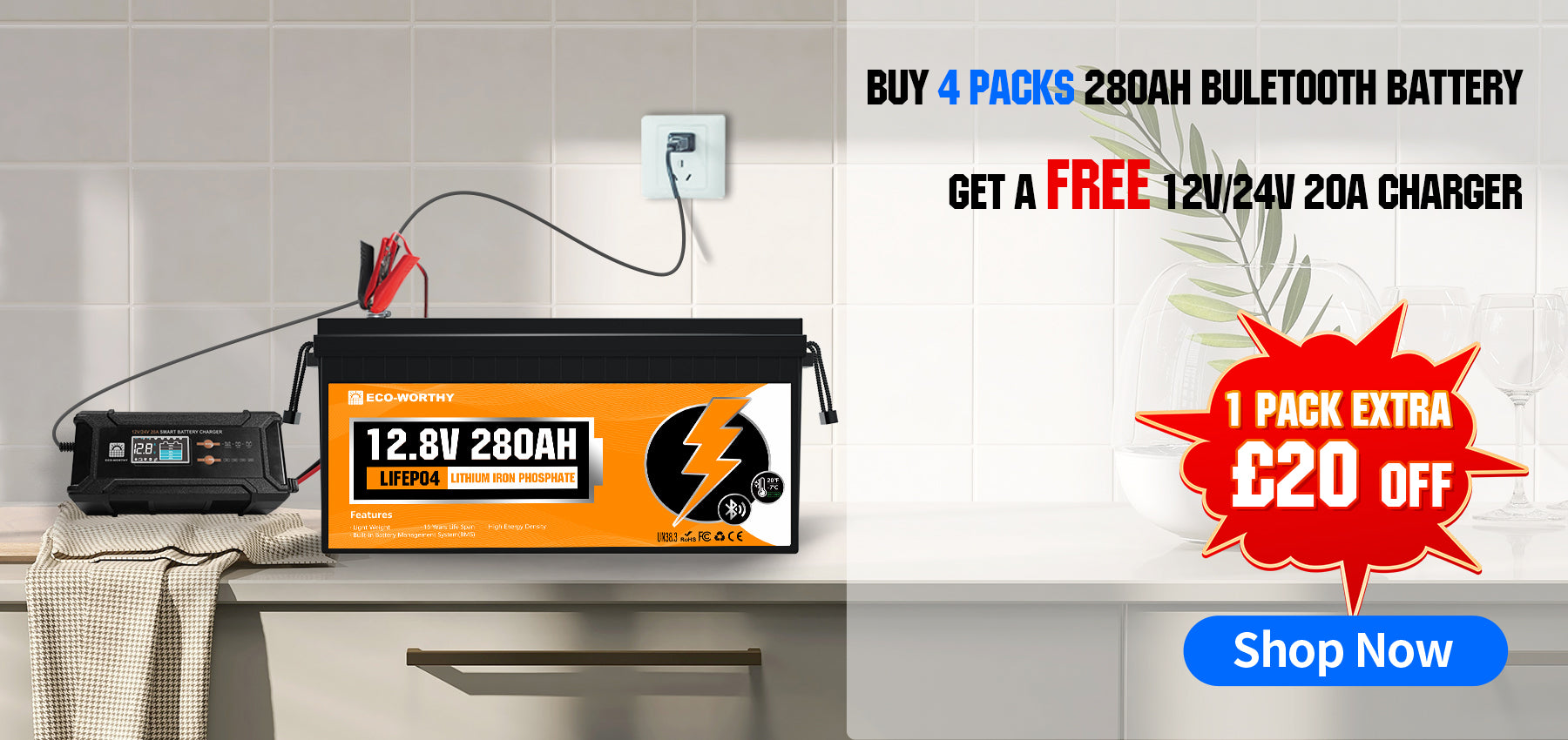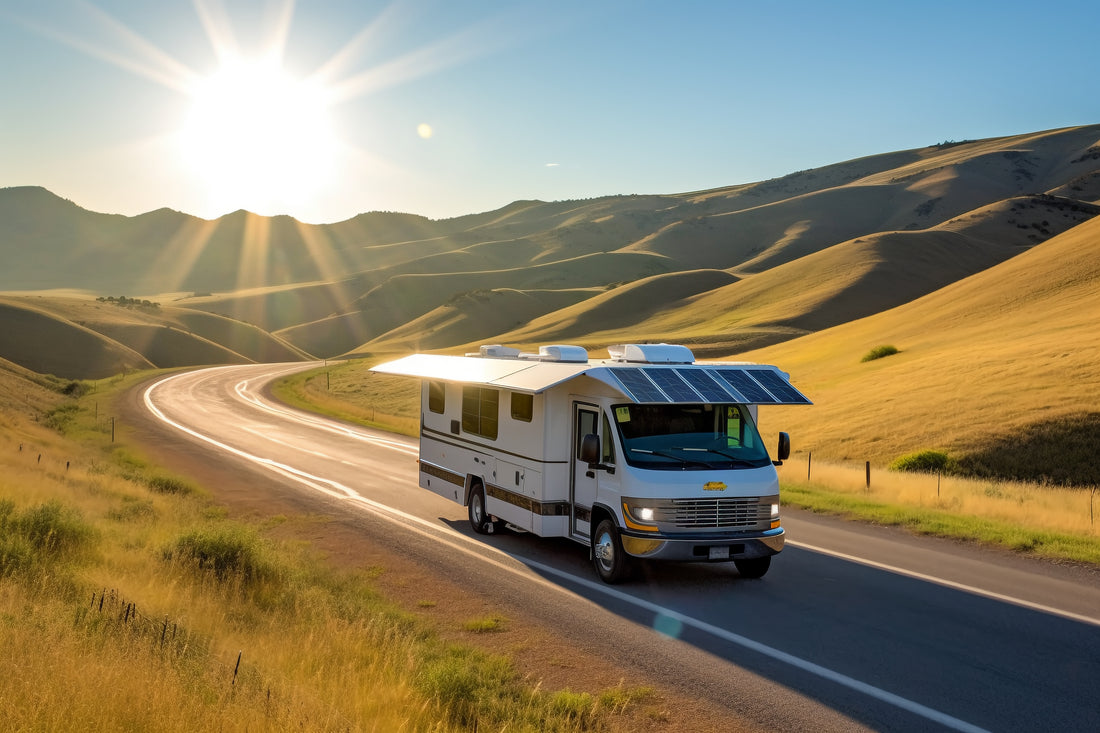Lithium batteries power both homes and RVs, but using them in RVs is trickier. RVs face changing temperatures, movement, and varied power needs that can make batteries overheat more easily. This is a big problem that can hurt battery life and be unsafe. Our guide will show you why RV batteries overheat, what happens when they do, and how to stop it. With this knowledge, you can take better care of your RV's power system, making your batteries last longer and your trips safer.
Causes of Overheating in RV Lithium Batteries
RV lithium batteries can overheat for several reasons. These causes range from environmental factors to how the batteries are used and charged.
1. Hot Weather and Direct Sunlight
RVs often travel to warm places. Hot weather makes batteries work harder and heat up faster. When an RV sits in direct sunlight, its interior becomes very hot. This trapped heat affects the batteries inside, raising their temperature even more.
2. Incorrect Charging
Using the wrong charger or incorrect settings can cause batteries to overheat. Each battery needs a specific type of charger and settings. Mismatched equipment forces the battery to work harder, creating excess heat.Learn more about the pros and cons of different battery types.
3. High Outdoor Temperatures During Charging
Batteries are sensitive to heat when charging. What works well in cool weather might be too much in hot conditions. As the outside temperature rises, batteries need gentler charging to avoid overheating.
4. Deep Discharging
Using too much of the battery's power at once, or draining it very low, creates stress and heat. This is like running a marathon without training - it's too much, too fast.
5. Continuous High-Power Usage
Asking the battery to provide a lot of power for a long time makes it heat up. This might happen when running many appliances at once or using power-hungry devices for extended periods.
6. Battery Age
Older batteries are more likely to overheat. They become more sensitive to temperature changes and stress as they age. An old battery might overheat in situations that wouldn't bother a newer one.
These factors can work alone or together to cause overheating in RV lithium batteries. Recognizing these causes helps in taking steps to prevent overheating and keep batteries safe and efficient.
Consequences of Lithium Battery Overheating in RVs
Overheating in RV lithium batteries isn't just an inconvenience - it can lead to serious problems. These issues range from reduced efficiency to potential safety hazards.
1. Reduced Battery Performance
When lithium batteries overheat, their ability to hold and deliver power diminishes. This means:
- Less stored energy for your RV needs
- Shorter running times for appliances and devices
- Unexpected power losses during your trips
Hot batteries struggle to maintain their charge, leaving you with less power when you need it most.
2. Shortened Battery Life
Excessive heat accelerates the aging process of lithium batteries. The results?
- Faster capacity loss over time
- More frequent need for battery replacement
- Higher long-term costs for RV owners
A battery that should last years might only survive months if regularly exposed to high temperatures.
3. Safety Risks
The most alarming consequence of overheating is the potential for dangerous situations:
Fire Hazards
Overheated lithium batteries can catch fire. In the confined space of an RV, this poses a significant threat to both property and lives.
Chemical Leaks
Extreme heat can cause battery casings to crack or burst. This may release harmful chemicals, creating health risks and environmental hazards.
Explosive Potential
In severe cases, overheated batteries might explode. This rare but serious risk underscores the importance of proper battery management.
Recognizing these consequences highlights the critical need for preventing lithium battery overheating in RVs. Proper care and attention to your RV's power system isn't just about maintaining performance - it's about ensuring safety on the road.
How to Prevent Overheating in RV Lithium Batteries
Here are practical ways to keep your RV's lithium batteries from getting too hot:
1. Use the Right Charger
Always use a charger made for lithium batteries. Look for a charger that matches your battery's voltage (12V, 24V, etc.) and has adjustable current settings. Check for labels like "LiFePO4 compatible" on the charger. Using the wrong charger can quickly overheat and damage your battery, so it's crucial to get this right.
2. Charge Batteries When It's Cool
Charge your batteries early in the morning or late in the evening when temperatures are lower. If daytime temperatures climb above 90°F (32°C), reduce your charging speed by half. Some advanced chargers have temperature sensors - use these if available. Charging during cooler periods helps prevent heat from building up in your batteries.
3. Choose Lithium Batteries with Built-in BMS
It's highly recommended to select lithium batteries that come with a built-in Battery Management System (BMS). A built-in BMS offers several crucial advantages:
- It automatically detects high temperatures and cuts off the battery to protect it.
- It prevents overcharging and over-discharging.
- It protects against charging and discharging overcurrent.
- It guards against short circuits.
- It helps balance the voltage between battery cells.
When purchasing a lithium battery for your RV, look for models that specifically mention an integrated BMS. Read the battery's manual carefully to understand its built-in protections. Most batteries with BMS have indicator lights showing that the system is working properly. If you notice any unusual behavior, it's best to have a professional check the system.
4. Avoid Using Too Much Power at Once
Try to spread out the use of high-power devices throughout the day. For example, run your air conditioner and microwave at different times. Using energy-efficient appliances, like LED lights, can reduce overall power draw. These habits prevent your battery from working too hard and heating up.
5. Keep Battery Levels in Check
Avoid letting your battery drop below 20% charge or fully charging to 100% unless necessary. Aim to keep your battery between 30% and 80% charged most of the time. These charging habits reduce stress and heat in your battery, helping it last longer.
6. Park in the Shade
Whenever possible, choose campsites with natural shade. Some apps can help you find spots with good tree coverage. If natural shade isn't available, create your own using awnings or canopies. Parking in the shade can lower your RV's interior temperature significantly, sometimes by up to 20°F (11°C).
7. Use Sunshades or Covers
Install reflective window coverings inside your RV to block out heat. An RV skirt can prevent sun from heating the underside of your vehicle. For long-term parking, consider using a breathable RV cover. These tools help keep your whole RV cooler, including the area where your batteries are stored.
Keep Your RV Batteries Cool and Safe!
Taking care of your RV's lithium batteries is crucial for enjoyable and worry-free trips. By using the right charger, charging during cooler times, managing power use wisely, and protecting your RV from excessive heat, you can prevent battery overheating. These simple steps not only extend your battery's life but also ensure your safety on the road. Remember, a cool battery is a happy battery. With these tips in mind, you're well-equipped to maintain your RV's power system effectively. So, go ahead and plan your next adventure, knowing your batteries are in good shape and ready for the journey ahead.

